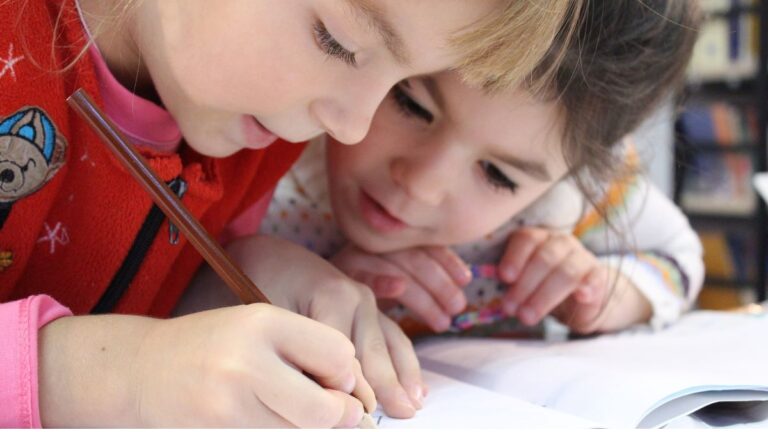So What Exactly is Respectful Parenting?
Respectful parenting means to seek to establish a relationship with our children instead of trying to control them. It’s the idea that simply put- love is enough! But what does that mean exactly? Learn in this article.
History of Parenting

Never hug and kiss [your children]. Never let them sit on your lap. If you must, kiss them once on the forehead when they say good night.
Quote. Unquote.
Do you know who said that? Dr. John Watson (1878-1958). Renowned psychologist.
And sadly, that was the kind of rhetoric that parenting TODAY has evolved from.
“Ok, Maryam… but that was ONE guy who said that, and who the heck was he anyway?”
1- He was a super famous and lauded psychologist of his time- some of his work is still revered (though not that cold piece of advice, thankfully )
2- He was definitely not the only person to believe that. These beliefs were what our grandparents believed and it was what our parents were raised on
“WHAT?! No way! My grandma was the sweetest!”
Maybe with you. Definitely not with her own kids. Ask them.
Also Exhibit A: Meet Harry Harlow. In 1963.. he did some experiments with baby monkeys to prove the need for love!
That kids CRAVE love.
That hugs and kisses are a biological need.
He made two “moms” for these monkeys. One “wire-mom” who only provided food and drink to the baby monkeys. The other was “the towel-mom” that only provided warmth and safety. The prevailing theory was kids only need food and basic caretaking from their mothers.
So what do you think happened?
The monkeys MOSTLY spent time with “towel-mom”, seeking love and warmth. They only went to “wire-mom” when they needed to eat. Harlow also places a dog toy in their cage to scare them and they’d run to… you guessed it, “towel-mom”.
Can you imagine that someone had to do scientific experiments to show kids NEED love?!!
Furthermore, he did these experiments in the period when our parents were kids. Why do you think he needed to PROVE something we totally take for granted? Something we all know and couldn’t imagine not believing in…
Well, because, John Watson. Because everyone at the time thought kids are “spoilt” if they’re kissed more than once a year!!
“Well, Maryam, but things are fine now.. we all hug and kiss our kids non-stop!”
Right. Things are definitely improving for children in today’s society. But there are plenty of damaging remnant beliefs from centuries and centuries of barely acceptable treatment of children.
Can you think of some things that lots of people still believe today about kids that are definitely not true, as explained by recent discoveries in neuroscience?
What does it mean exactly… to ‘just love them’?

When we think about what our kids need most from us, we think love.No one would argue that our kids need love from us. The problem arises when we explore what that love looks like.
The truth is that for all the centuries that mankind has inhibited earth, parenting hasn’t evolved much at all. People have always believed and continue to believe that kids need to be taught compliance and blind obedience (any questioning from children gets labeled as rude and disrespectful). Parents whose kids follow instructions without a peep get immediate praise, and we all know what happens when kids don’t follow our instructions.
The second strongest tenant of “good parenting” seems to be how much we can control and manipulate kids’ daily behaviors. We went from using physical punishment to psychological shaming to using rewards like praise and stickers to manipulate behaviors.
If I were to summarize the above two requirements of being a parent, I’d say our definition of love apparently means:
1- Teaching our kids blind obedience to all “elders” in their lives
2- Modifying our kids’ behaviors to fit in with societal expectations
I know what you’re thinking.
“But Maryam… don’t our kids NEED to be obedient in certain things especially? And I’m not modifying my child’s behavior to fit societal expectations… I’m only modifying/correcting behavior which is wrong and bad.”
And I’d say, yes, sometimes we do need our kids to listen to us and this group provides plenty of ways to help our kids do what we need them to do.
However, we shouldn’t base our entire parenting methodology on teaching obedience. That just says “I’m going to love you only when you listen to me, and when you don’t, I’m going to show you just how unhappy I am with you.”
And sure, we do want to teach our children morals, values, empathy, gratitude, kindness, flexibility, and all the other good stuff. It’s HOW we want to teach that stuff that’s incredibly flawed and goes against all the research ever done on children and parenting.
This is why:
- Our intense drive to drill these qualities in our kids implies that we think they already aren’t “good people”. Pause and think for a moment, aren’t all children born pure and good (on the fitrah)? This knowledge would imply that all we really need to do is create an atmosphere to match their inherent goodness to further cultivate those awesome qualities. How do we do that? BY MODELING WHAT WE WANT OUR KIDS TO LEARN. PERIOD. FULL STOP.
- When kids seem to act like they’re NOT “inherently good”- it’s helpful to recall much of the brain science stuff I share in this group. That’s because almost every behavior they have that seems so unpleasant to us has a basis in their brains’ limitations and their understanding of the world which is very different from ours.
- Finally, many of these awesome qualities we want our kids to have aren’t even possible with the brain and experience limitations they have. They’re qualities many of us are still learning as adults.
In other words- aren’t we giving in to societal expectations of how our kids should act without taking into account that they’re still kids with very much still developing brains?
Ok, so then what IS love, if not those things?
From everything I’ve understood from my own kids and the research and findings on love and relationships (Brene Brown, John Gottman, and yes, Islam), I’m going to say love is the two following things.
1- Connection
2- Belonging
1. Connection

This is what happens when we show up in our kids’ lives with curiosity (I wonder why you did what you did so I can help you) and mindfulness (I’m all in right now, ready to move at your pace), and without judgment (you’re not just lazy, slow, forgetful, rude, disorganized, etc.) and instant solutions (you should’ve just done this or that, just do this or that).
Example: Your one child hits the other.
Judgement: He’s so aggressive. He’s got anger issues.
Connection: He’s really struggling these days, I wonder what’s going on. Let me investigate and offer help.
Action: You get down on bended knee and empathize, “You’re really struggling right now, I’m here to help you.”
At this time if any ‘buts’ come into your mind, put them on hold. This is called trust and none of this is going to work if there’s no trust. This is also what’s going to happen in a moment of possible connection. A lot of ‘buts’ will come into your mind and you just have to push through them all. Trust over fear is your new mantra.
Some other ways to connect:
1- Get involved in child-led play and activities with your kids. Lose your own agenda. Follow their lead, ask them questions “should I color this blue or yellow?” Enjoy the play… stop when you’re not enjoying and find another time.
2- Take notice of what interests them and enter their world. Learn more about it. Especially for older children. Sometimes we don’t like what they like- we still need to make an effort to learn more.
3- When they share something, be an active listener instead of offering immediate solutions and silver linings. You go to words can be “tell me more”, “I’m listening…”, “I see… “, “Acha…”, “Hmmm…”.
4- Respond to their mistakes with empathy and the desire to help them.
5- For older kids especially: giving them a lot of autonomy and freedom to make their own choices.. even when we’re scared they won’t make the right choice. This is a process. Its important they know we trust them.
6- Using a lot of kind, positive affirmations with them, focusing on their strengths.. ignoring their weakness, and giving them grace for them.
7- Trusting their judgement when they tell us they don’t wanna do something and seeking to understand rather than assume they’re lazy, incompetent, demotivated, etc.
Things that hurt connection: Shaming, punishments, judgements, a lot of “why do you always…”, “how come you never…”, control, using rewards as motivation and just generally never taking the time to be attuned with THEIR perspective and needs.
2. Belonging

This might seem a bit confusing at first because we think, don’t our kids belong to us? Why on earth would they think or feel that they don’t?
Well, apparently lots of kids do lose their sense of belonging. Brene Brown talks about her research findings on 5th graders across the U.S. who say it sucks to not belong at school but nothing is as bad as not belonging at home.
When I was trying to think of the best way to explain this concept, Eisa (my 7yo son) saved the day for me. Though in full disclosure, this story is not a shining example of my motherhood. I debated sharing it, but I think it’s definitely not a secret that I screw up.
When we were on the cruise (recent vacation), every night there was a show or something interesting happening around the same time as the kids’ bedtime. Our plan was to make them all nap so they could stay up late. A plan that was thwarted every day by Eisa (7yo) who not only hates napping but generally thinks sleep is a waste of time.
So one night he got particularly agitated because we were watching a movie on the ship deck and he was super sleepy. I finally stormed out of there with him with some not-so-nice words.
E: “That hurts my feelings, mama.”
Me: “Well, it hurts mine that you didn’t nap so I could watch my movie!” (Yes, very mature )
E: “But I hate napping. You don’t even care.”
Me: “Yes I don’t!”
E: “That makes me sad.”
Me: “I don’t care!” (Ouch! Who sounds like a kid here?)
E: (suddenly his voice breaking) “I guess you just want me to be adopted in another family. You don’t wanna be my mom anymore.”
And with those words, my brain finally found its “lid” and I told him I was sorry for acting so badly and hurting his feelings. We repaired. We were ok.
So even though that was a hard share for me, I’m glad that he was able to articulate his feelings so well there. Can you imagine how he’d have felt if I had always spoken to him that way? By now he wouldn’t even have had enough sense of belonging to realize when it was threatened.
Here are a few things that can rob kids of their sense of belonging in their family:
1- Keeping family secrets (not sharing when sad/tragic things happen and they are not talked about openly and age-appropriately with kids)
2- Diminishing kids’ feelings and experiences with “koi baat nahi”, “it’s ok”, “you’re ok”, “you’re brave” etc.
3- Making a child “the bad guy” of the family. Using labels such as “the difficult one”, “problem child”, “shaitaan” and always assuming they must’ve “started things”.
4- Shaming kids for their behavior.
5- Not setting any boundaries and being overly permissive.
Here are some ways to foster their sense of belonging:
1- Listening to their concerns. Even a baby can communicate that something is not ok. Even when we don’t know anything- we can validate their pain.
2- Problem-solving through win/win conflict resolution (see unit on that) instead of pushing our own solutions on them every time.
3- Viewing them with the lens of “you’re inherently good” (“ap fitrat pai Ho”) and so trusting them to make as many choices as possible even if they will make mistakes.
4- Setting clear boundaries and helping them execute them in a kindly strict way.
5- Sharing our own real selves with them and our own vulnerabilities in an age-appropriate way. (“Gosh I had a terrible day today!” “I’m feeling sad today because I miss my parents”)
6- Talking to them about things that might seem confusing or difficult for them.
7- Asking for their advice and help.
8- Valuing their input in home projects/chores but not demanding it or berating it as not good enough.
Finally (respectful warning about religious content): I love that in Islam we’re constantly encouraged to foster a sense of community. Even the congregational prayers (namaz jamat) are not just to pray but to connect with others. This community-building starts at home. When our kids feel like they TRULY belong in our home and in our family, they will always feel like they have a safe haven in this world AND with this strong base, in shaa’Allah they will make better choices. (Lots of research on this phenomenon has also been done- kids that belong to safe/loving homes do well in life).
How to connect with our kids

This section is ESPECIALLY for working moms and dads, parents living in joint family systems, and of course for everyone else too.
We know now from neuroscience how important the time spent with our kids is. This time, if positive and conscious, literally makes our children’s brains grow leaps and bounds and sets the stage for secure attachments.
Fortunately, the QUANTITY of this time is not nearly as important as the QUALITY. Think of the connections formed during this quality time as fuel for your children- they need it to do well in life 🙂
If you follow some of the guidelines I’m about to share… you can leave behind the omnipresent guilt and feel more confident that your time with your children is ENOUGH.
1- Make the caretaking activities (feeding, bathing, diapering, bedtime) count as quality time. Do this by being truly present in the moment and not trying to hurry through these things. Be deliberate in every move and talk through everything. “It’s time for a diaper change.. can you help me do this? Can you hold these flaps here?”
Put your phone away during meal times and bedtime. Being mentally present with your children during these times builds a connection.
2- Instead of worrying that you’re not playing with them and feeling too tired to play with them when you get home from work, be a passive observer instead. You don’t need to be super interactive.
I often grab my cup of chai and sit and watch my kids play. They feel happy to have me there and if I don’t have the energy to engage, I don’t. Our mindful presence is more than enough during playtimes.
3- Seek connection, not correction. When there’s an opportunity to “correct/teach”- instead of giving lectures, use that opportunity to connect instead. In any case, the behavior is often communication that their cup is empty… fill it up with an empathetic listening ear.
Don’t worry about life lessons at every moment. “You hit your sister because she snatched your toy! That really sucks… it must be hard sometimes having a little sister who keeps taking your stuff!” (You can brainstorm ideas later to express anger safely).
4- If you only have time for a small activity together- make it reading. Read together every day if possible and as always, let them take the lead.
5- During weekends- Focus on spending time together at home or playing outside together rather than planning some extravagant outing (sometimes is fine obviously).
6- With older kids who don’t need any caretaking activities- ask them if you can help them with anything. Homework? Project? Closet clean-up? Then make a date to fulfill that activity together.
Remember, it’s about quality! Physical presence doesn’t mean much if we’re always distracted and on the go!
- So What Exactly is Respectful Parenting? - August 14, 2020







